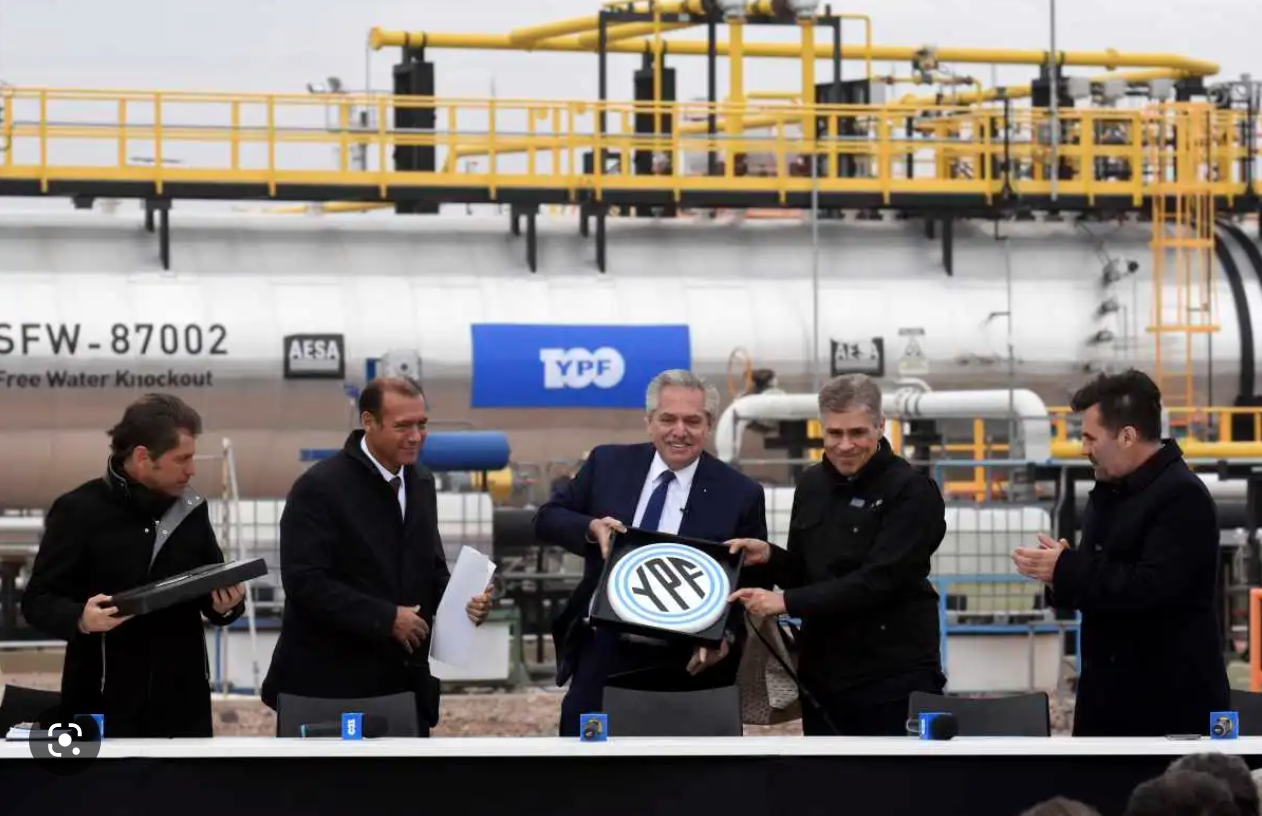It is remarkable how the narrative and discourse of some can influence the behavior of others, independent of the validity of the message, vision, or ideology of the speaker. Unequivocal messages emerged from the Davos forum about the unequivocal messages about the irremediable nature of financial globalization and the benefits of the market, in short, about the dangers of public intervention.
But the world is changing, the discourses are different. One proof of this is the clamor for different state support schemes to finance the energy transition among the businesspersons gathered in Davos. Another one is the demand made by the Executive Director of the International Monetary Fund (IMF), Kristalina Georgieva, to leave behind “ideologism” (i.e., opposition to subsidies) and thus move forward quickly with the transition.
Undoubtedly, the discourses reflect a new normality, which also involves the irruption of new companies and new political actors, since the transition process not only implies a technological change, but also affects the currently prevailing economic and political power scheme, with vast geopolitical consequences.
The approval by the US Congress of the Inflation Reduction Act (IRA) implies a profound change in policy. The tax package introduced by Joe Biden’s administration involves subsidies of $370 billion, while allowing taxpayers to enter the program through the use of tax credits.
Any investment in clean energy is assured of 30% in tax credits, although the final subsidies may exceed that threshold, for example, with payments arising from either state governments (on payroll) or local governments (rent benefits). Thus, many investors obtain state aid for half the value of the project, although some analysts estimate it to be more than that.
Since the law was passed in mid-2022, projects worth more than 90 billion dollars have been approved and this is only the beginning: according to estimates by the Credit Suisse bank, the tax benefits of the program could reach 800 billion dollars and indirectly amount to some 1.7 trillion dollars. Doubtlessly, the Democratic Government’s economic-financial gamble is impressive and in line with the geopolitical challenge facing the US. Beyond the climate problem, how energy is generated, how people move around or how it is produced and consumed, there is the technological race behind it.
For the moment, China leads (by far) in the production of clean technologies and their components, and has become the leading producer of lithium batteries and electric cars. This industrial policy allows it to move up the value chain and create quality jobs. All this reflects a long-term vision, strategic planning and an incalculable amount of subsidies granted to finance the transition: Bloomberg-NEF estimates that subsidies of $546 billion were made in 2022 alone, so competing with China will not be easy.
In the European Union, special circumstances have marked the energy debate. A series of crises, starting with the financial crisis of 2010, followed by the consequences of a series of extreme events, then the outbreak of the COVID-19 pandemic, first, and then Russia’s invasion of Ukraine, brought the European leadership face to face with reality. Monetary policy was no longer enough: fiscal policy became necessary to respond to emergencies.
Although subsidies were reluctantly accepted, a package of 81 billion euros in subsidies for renewables emerged in 2020. This was followed by the Next Generation EU plan, designed to boost recovery in member countries in the face of COVID-19 through a “stimulus package never before funded in Europe”. Finally, a new tax package was implemented, with the aim of moving towards a greater social cohesion
In order not to lose prominence, many fewer investments and sources of employment, a new “European Sovereign Wealth Fund” has been discussed in Brussels recently. The aim is to extend the current scheme of state aid and subsidies focused on (certain) renewables, as well as to match the benefits offered by the US government to investors. However, this is far from exciting the so-called “fiscal hawks”.
The message that emerges among entrepreneurs is that tax incentives are irresistible to investors. Although this has always been the case, the discourse can also be analyzed from the perspective of who grants the benefit. What stands out here is the policy design, the presence (or, rather, the absence) of a strategic vision of the state.
The climate emergency lays out the need to transform the production model and accelerate the energy transition. Obviously, the reality facing Latin America is different, the fiscal space is smaller and the magnitude of the funds is different. However, it is also true that many of our countries continue to grant (ample) benefits to the oil industry. We are not only talking about fuel consumption subsidies, which are generous, but also about tax benefits granted to new exploration projects despite the low public revenues generated by them or the ample facilities enjoyed by foreign companies when repatriating funds. Not to mention the scarce environmental controls involved in this type of project, whose costs “appear” at the first pipe breakage. In short, state subsidies are present and significant.
The profusion of public policies, including the substantial fiscal resources that different countries grant to the energy complex, implies costs, but it is also expected that the transition will provide economic, social and environmental benefits. But this is a political gamble too, with strong geopolitical repercussions. Unfortunately, many governments in the region continue to lean towards industries of the past that benefit a few and have costly and long-lasting consequences for many others.
The development narratives that are being imposed in the region will undoubtedly delay the transition in Latin America. We continue to look to the past.
*Translated from Spanish by Camille Henry












